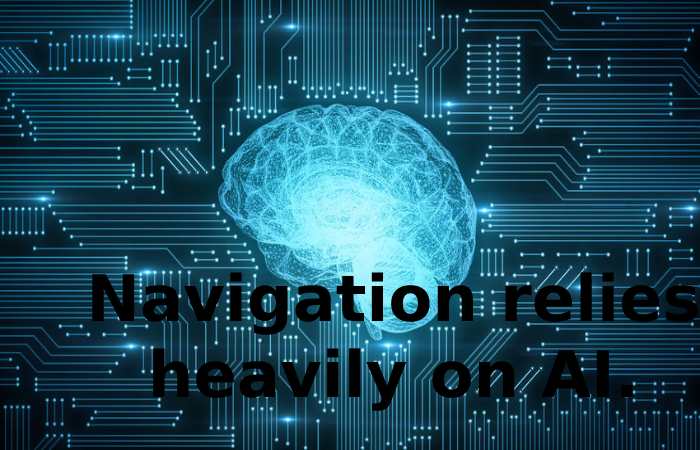Table of Contents
Definition Of Artificial Intelligence
Artificial intelligence is the ability of an appliance to display the same capabilities as human beings, such as reasoning, learning, imagination, and the ability to plan.
AI allows technological systems to observe their environment, relate to it, solve problems and act with a specific purpose. The machine receives information (already prepared or collected through its sensors, for example, a camera), procedures it, and responds to it.
AI systems can adapt their behavior to a persuaded extent, analyze the effects of previous actions and work autonomously.
Why Is Ai Important?
Some technologies with intelligence consume been around for more than 50 years. Still, advances in computing power, the availability of vast amounts of data, and new algorithms have enabled significant advances in AI in recent years.
Artificial intelligence plays a central role in the arithmetic transformation of society and has become a priority for the EU.
Its future applications remain expected to bring significant changes, but AI is already present in our lives.
Please find out more about the occasions and challenges of artificial intelligence and how Parliament wants to regulate it.
Artificial intelligence in everyday life
Below are some artificial intelligence requests that you may not have been aware of using this ability.
Internet shopping and advertising
Artificial intelligence remains widely used to generate personalized recommendations for consumers, based, for example, on their preceding searches and purchases or other online behavior. AI is essential in commerce to improve products, plan inventory, logistics processes, etc.
Searches on the web
Search engines learn from the vast amount of information that their users provide to deliver relevant search results.
Personal digital assistants
Smartphone mobile phones use AI for merchandise that is as relevant and personalized as possible. The use of virtual assistants that answer questions, give endorsements, and help organize their owners’ routines has developed widespread.
Automatic translations
Based on the written or spoken text, verbal translation software relies on artificial intelligence to provide and improve translations. It also applies to meanings such as automated subtitling.
Smart houses, cities, and infrastructure
Smart thermostats learn from our behavior to save energy, while competent city developers hope they can regulate traffic to improve connectivity and reduce traffic jams.
Vehicles
Although self-driving vehicles are not yet widespread, wagons already use AI-powered safety features. For example, the EU helped finance the vision–based driving assistance system VI-DAS, detecting potential dangerous situations and accidents.
Navigation relies heavily on AI.
Cybersecurity
Artificial intelligence systems can help recognize and fight cyberattacks and other online threats based on the data they continuously receive, recognize patterns, and prevent attacks.
Artificial intelligence to fight Covid-19
AI has been used in thermal imaging cameras connected at airports and elsewhere. In medicine, it can help recognize a lung contagion from a test called a CT scan. It has also remained used to provide data to track the spread of the disease.
Fight misinformation
Some AI applications can detect fake news and misrepresentation by extracting information from social media, searching for sensational or frightening words, and identifying which online sources are deemed authoritative.
Find out more about how MEPs want to order data law to promote innovation and ensure security.
Other examples of AI applications
AI remains intended to transform almost every aspect of life and the economy. These are other examples:
Health
Researchers are studying how to use AI to analyze tremendous amounts of health data to find patterns that could lead to discoveries in medication and other ways to improve individual diagnoses.
For example, researchers developed an AI database that responded to backup calls and claimed it detected cardiac arrests faster than a doctor could.
Furthermore, connect, co-funded by the EU, is developing search and text services in multiple languages that help people find the most relevant medical information available.
Transport
Artificial intelligence could improve rail traffic protection, speed, and efficiency by minimizing wheel friction, exploiting the pace, and enabling autonomous driving.
Manufacturing
Artificial intelligence can help European creators become more efficient, and power factories in Europe were again employing robots, optimizing sales routes, or timely predictions of necessary maintenance or breakdowns in “smart factories.”
The EU co-funded research project SatisFactory customs cooperative augmented reality systems to increase job fulfillment in “smart factories.”
Food and agriculture
AI can remain used to build a sustainable food system: it could ensure healthier food by minimizing fertilizers, pesticides, and irrigation, improve productivity, and reducing environmental impact. Additionally, robots could eradicate weeds and reduce herbicide use.
In the EU, there are already many agriculturalists using AI to control the crusade, temperature, and feed consumption of their livestock.
Public administration and services
Using vast amounts of data and knowing patterns, AI could anticipate natural adversities, enable adequate preparedness, and reduce their consequences.
Also read:
Watch The Emoji Movie Full Movie
Spider-Man: Into The Spider-Verse(2018) Full Movie Online – Reddit
Also read: Venom (2018) Full 123 Movie Free Online -123Movies
Related Searches :
[using artificial intelligence to detect recyclable waste — part 2]
[application of ai in recycling]
[robotic recycling sorting]
[recycling sorting technology]
[recycling robots]
[ai waste sorting]
[ai recycling robot]
[amp robotics]
